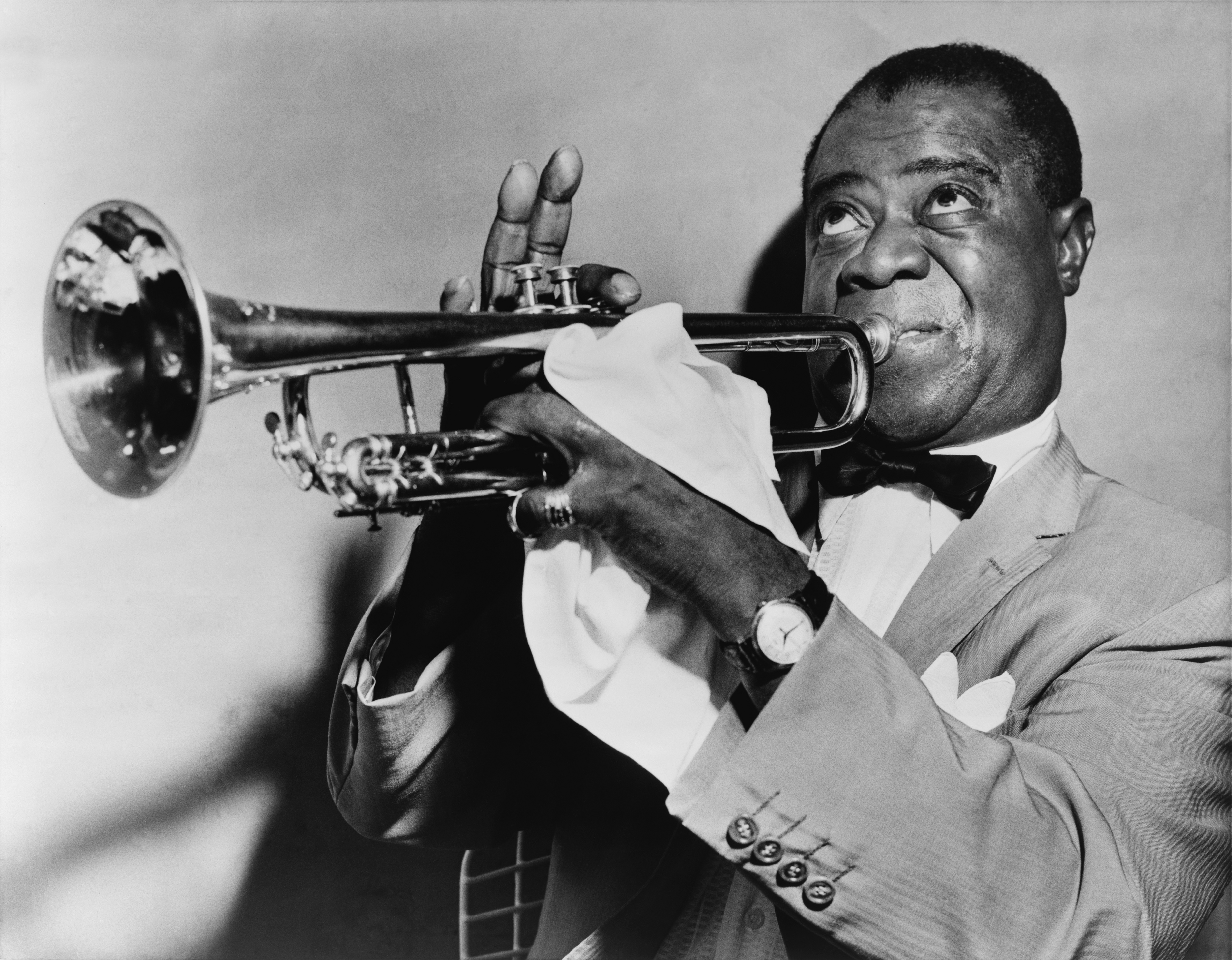“Si tienes que preguntar, nunca lo sabrás.”
Respuesta que dio cuando le preguntaron qué era el jazz.
Louis Armstrong , también conocido como Satchmo o Pops, fue un trompetista y cantante estadounidense de jazz.
Se trata de una de las figuras más carismáticas e innovadoras de la historia del jazz y, probablemente, su músico más popular. Gracias a sus habilidades musicales y a su brillante personalidad, transformó el jazz desde su condición inicial de música de baile, en una forma de arte popular. Aunque en el arranque de su carrera cimentó su fama sobre todo como cornetista y trompetista, más adelante sería su condición de vocalista la que le consagraría como una figura internacionalmente reconocida y de enorme influencia para el canto jazzístico.
Los logros de Satchmo escapan a lo meramente artístico o personal, pues se convirtieron en símbolo de la creatividad del americano.

“Si tienes que preguntar, nunca lo sabrás.”
Respuesta que dio cuando le preguntaron qué era el jazz.
Variante: What we play is life.
Fuente: Louis Armstrong, in His Own Words: Selected Writings
“All music is folk music. I ain't never heard a horse sing a song.”
Variante: All music is folk music. I ain't never heard a horse sing a song.
Spoken intro to "What a Wonderful World" (1970 version)
Contexto: Seems to me, it aint the world that's so bad but what we're doin' to it. And all I'm saying is, see, what a wonderful world it would be if only we'd give it a chance. Love baby, love. That's the secret, yeah. If lots more of us loved each other, we'd solve lots more problems. And then this world would be a gasser. That's wha' ol' Pops keeps saying.
Contexto: Some of you young folks been saying to me, "Hey Pops, what you mean 'What a wonderful world'? How about all them wars all over the place? You call them wonderful? And how about hunger and pollution? That aint so wonderful either." Well how about listening to old Pops for a minute. Seems to me, it aint the world that's so bad but what we're doin' to it. And all I'm saying is, see, what a wonderful world it would be if only we'd give it a chance. Love baby, love. That's the secret, yeah. If lots more of us loved each other, we'd solve lots more problems. And then this world would be a gasser. That's wha' ol' Pops keeps saying.
Ebony magazine, November 1964 http://books.google.com/books?id=G98DAAAAMBAJ&q=%22making+money+ain't+nothing+exciting+to+me%22+%22You+might+be+able+to+buy+a+little+better+booze+than+some+wino+on+the+corner+But+you+get+sick+just+like+the+next+cat+and+when+you+die+you're+just+as+graveyard+dead+as+he+is%22&pg=PA138#v=onepage
“The way they're treating my people in the South, the government can go to hell.”
As quoted in The New York Times (19 September 1957)]
Satchmo: My Life in New Orleans (1954)
“If you still have to ask, shame on you”
Armstrong's response to the question what jazz is, cited by Max Jones et. al.: "Salute to Satchmo", I.P.C. Specialist & Professional Press Ltd 1970, page 25
Often misquoted as "Man, if you gotta ask you'll never know." Oxford Dictionary of Modern Quotations (third edition)
Spoken intro to "What a Wonderful World" (1970 version)